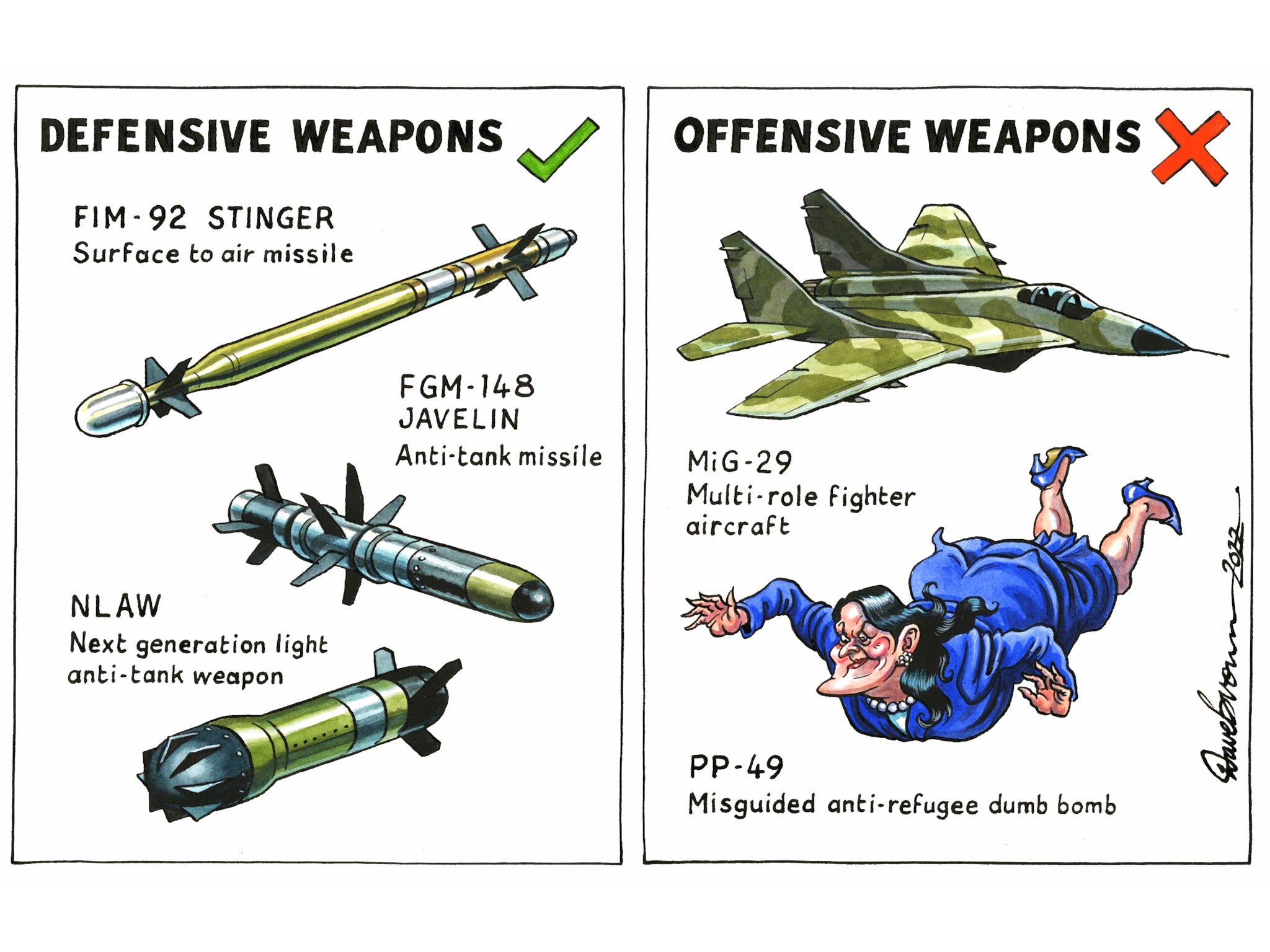The drastic sanctions on Russian oligarchs are designed to put maximum pressure on Putin
Editorial: In the end, fear of Putin will no doubt weigh more heavily on the minds of these oligarchs than whatever the British Oligarch Taskforce can throw at them

The government’s sanctioning of the less-than-magnificent seven of Vladimir Putin’s most useful oligarchs should have happened long ago, when the monster of Moscow first set on his murderous adventures. As it stands, the delays, caused by past complacency about the law, may have allowed some of these extremely wealthy men to move their assets behind the reach of the authorities.
Not, though, Roman Abramovich’s football club, Chelsea FC. He seems destined never to gain any benefit from his stewardship of that important sporting institution, though no doubt other of his more liquid or mobile assets may already have departed the United Kingdom. Still, “we are where we are” as they say in footballing circles, and the government needs to plot its next moves.
The excitingly-named “Oligarch Taskforce”, which sounds like the working title for a TV detective drama, needs to complete its research on the individuals already identified, as well as pursuing fresh lines of enquiry. None of this will be easy. Shell companies, family trusts, offshore accounts, tax havens and jurisdictions with light touch financial regulation and outright fraud are the traditional and formidable obstacles placed in the way.
The oligarchs with something to hide can pay for the best legal, PR and financial advice, and the city of London is all too happy to act as a laundromat for their money. The government’s hasty attempts to dismantle this apparatus of subterfuge are so late in coming that it means it will take many weeks or months to lift the veils on these oligarchs’ extensive assets.
We may be surprised about how much has been parked in the UK, and how little of the £15bn the seven are collectively worth is subject to UK income or other taxation. It might even mean a boost for HM Treasury (though not the coffers of the Conservative Party). The Johnson administration may find itself responsible for one of the more dramatic redistributions of income and wealth in British history.
That, though, is not the principal aim of the exercise. These drastic and unprecedented sanctions are designed to put maximum pressure on those around Putin, those who help fund his political and other activities, and whom the Russian state, in return, protects from unwelcome attention. It is really something akin to a mafia protection racket, with the oligarchs that have been sanctioned still enjoying the fruits of their fortunes: a pact between devils, it might be said.
To keep up to speed with all the latest opinions and comment sign up to our free weekly Voices Dispatches newsletter by clicking here
In the end, fear of Putin will no doubt weigh more heavily on the minds of these oligarchs than whatever the British Oligarch Taskforce can throw at them. Still, it’s important for them, and the Kremlin, to understand that Russia cannot operate and enjoy the freedoms of a globalised liberal economy if it is not prepared to abide by the usual conventions of liberal democracies.
It is something they might think about mentioning to Putin, if they catch him in rare listening mode. There is a price to be paid, in other words, for wars of aggression, and the time has passed when the world can just shrug and move on.
The Russian people will soon ask why they can no longer buy a McDonald’s Happy Meal, why their Lada factories (owned by Renault) have closed down, why BP and Shell are no longer producing or buying Russian oil and gas, why they can’t send money abroad, and why Abramovich is no longer the tsar of Chelsea FC. The truth will out. There are many channels through which western sanctions can be made effective.



Join our commenting forum
Join thought-provoking conversations, follow other Independent readers and see their replies
Comments